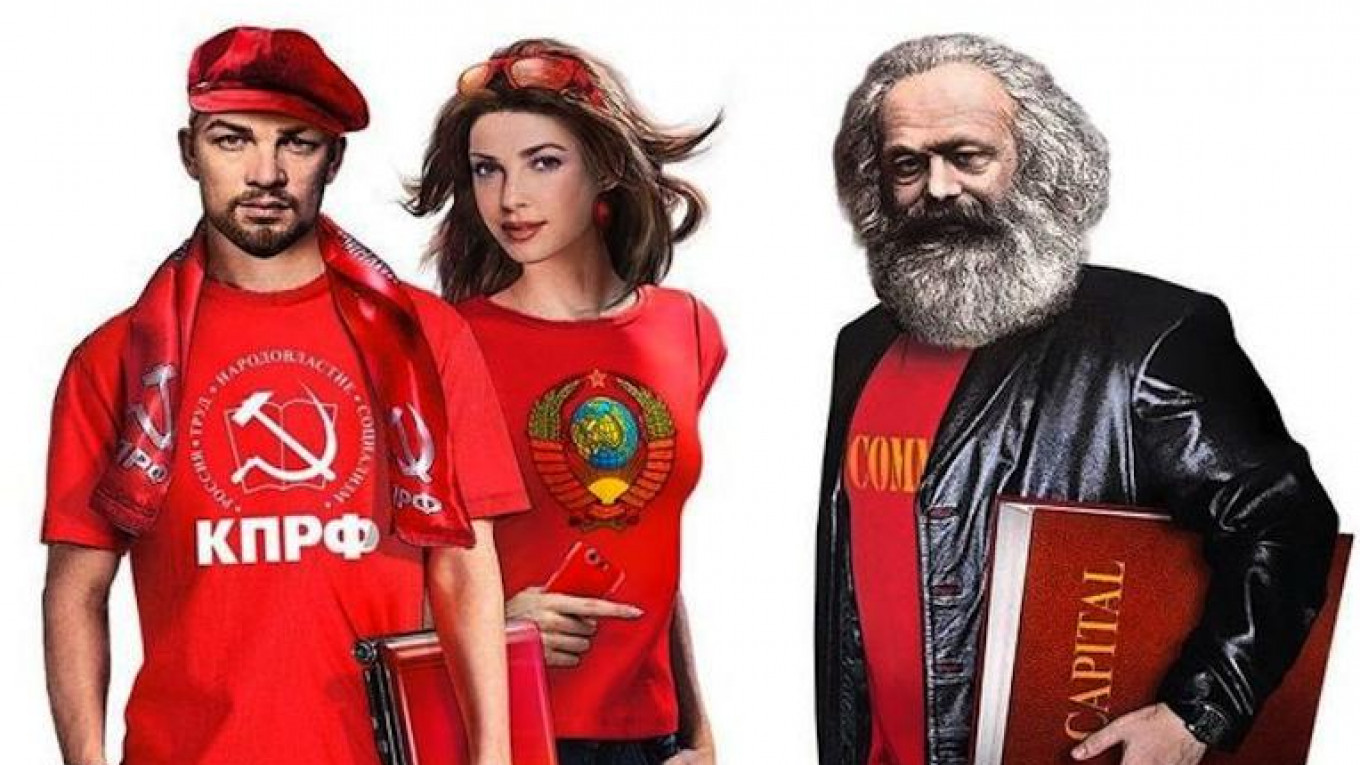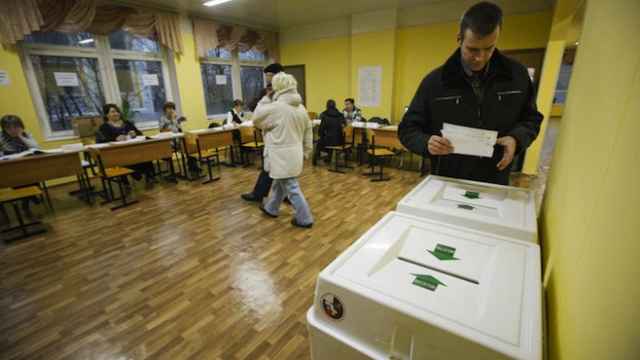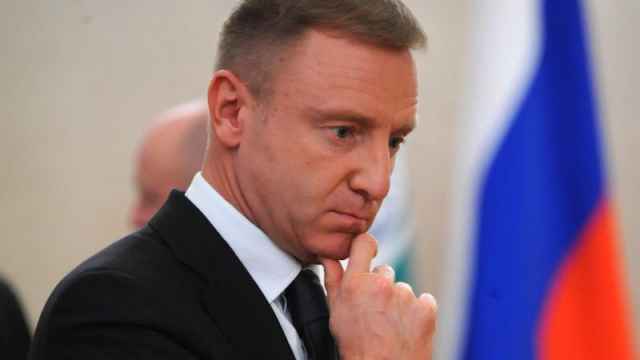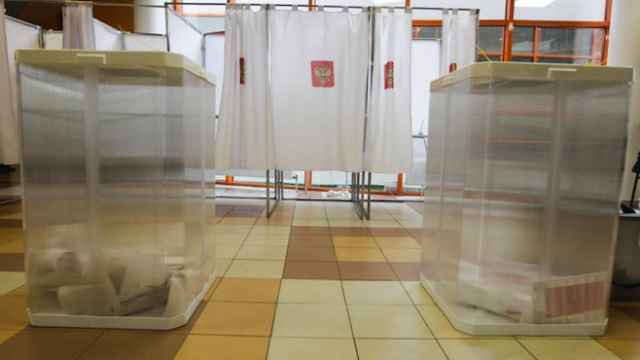Three weeks ahead of the elections, the streets of Russian cities, towns and villages have become filled with political banners. Some of them are ordinary enough, promising to solve housing issues, education, build new hospitals. Others have caused offence and scandal. Yet others are, well, how can we put it ... bizarre.
The Moscow Times profiles the most unforgettable art of Russia’s 2016 election campaign.
A Strong Woman for Strong Russia
Natalya Pogorelova is the face of nationalist-leaning Rodina party in the southern Krasnodar region. She runs on a no-nonsense 5-point programme: banning illegal migration; supporting the military; preserving Russia’s sovereignty, “total” import substitution and freezing utility fares and prices on essential goods.
Her clearly no no-nonsense campaign poster was picked up online by popular Russian blogger Rustem Adagamov.
Cats, Dogs and Soviet Borders
The populist right Liberal Democratic Party (LDPR), run by the flamboyant political dinosaur Vladimir Zhirinovsky, decided to play the pet card in their campaign. “LDPR [is] against irresponsible attitude to pets,” one of their campaign print-outs says.
Candidate Alexander Gliskov from Krasnoyarsk took the party position to another level. “If you have a cat or dog, vote for LDPR!” his poster says.
Nationally, LDPR appeals to grander sentiments. Screens at airports across the country promise no less than to “restore the borders of USSR.”
The Right Savchenko
The ruling United Russia party, in turn, resorted to promoting an already well-known brand.
In the disputed Crimea region, the party put forward Svetlana Savchenko, a woman who shares the same last name as Nadiya Savchenko, the notorious former Ukrainian pilot controversially imprisoned in Russia. Shortly after sentencing, the Ukrainian Savchenko was extradited to Kiev and became a member of parliament there.
Now Russia has it’s own Savchenko — “our Own Crimean [one]”.
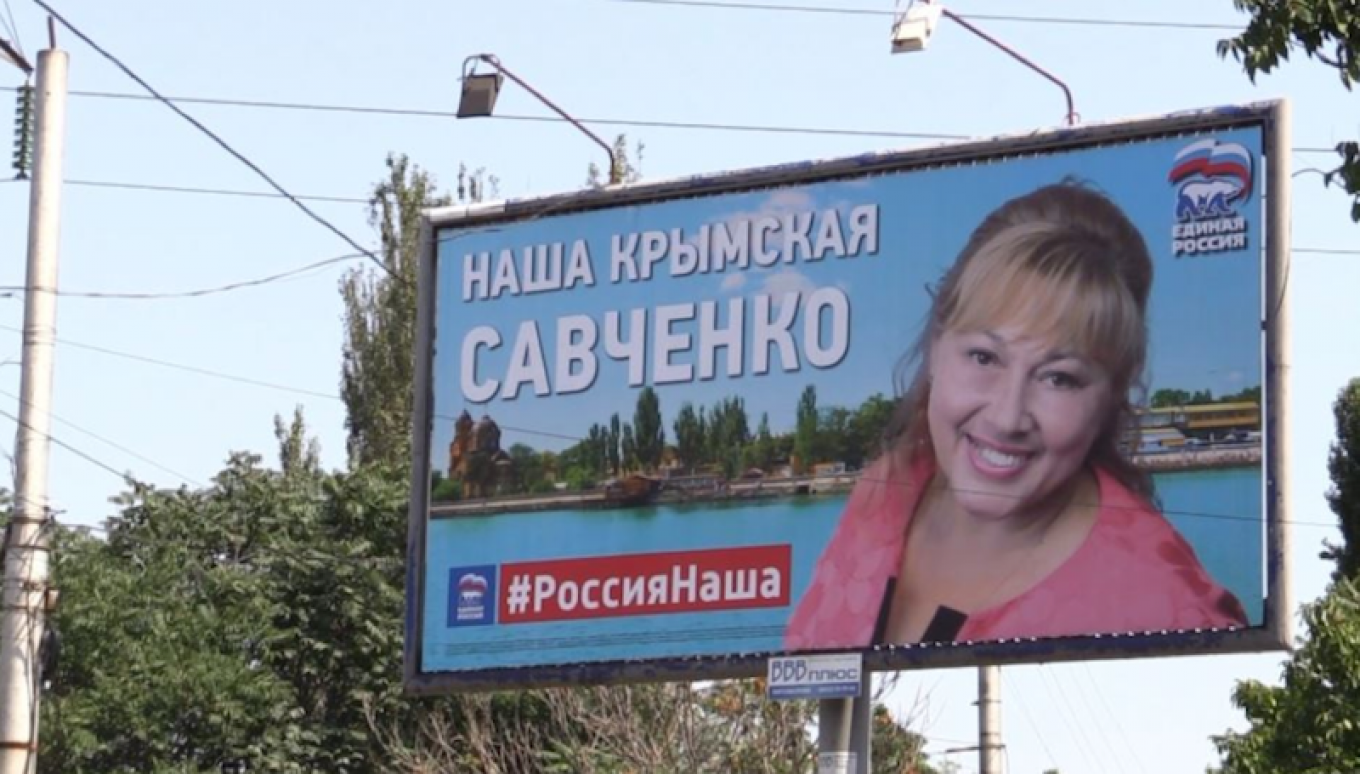
Sexy Blue Lenin
Russia’s Communist Party, run by post-Soviet relic Gennady Zyuganov, has reluctantly admitted that it needs to attract younger voters. After a laborious creative process, they have come up with new posters depicting a young Vladimir Lenin in jeans and sneakers, with girl by his side. Laptops and smartphones compete with Soviet symbols, and the message is that the Communists are hip and up-to-date.
“There is such a party!” declare the posters. What exactly that party can be, however, seems less clear.
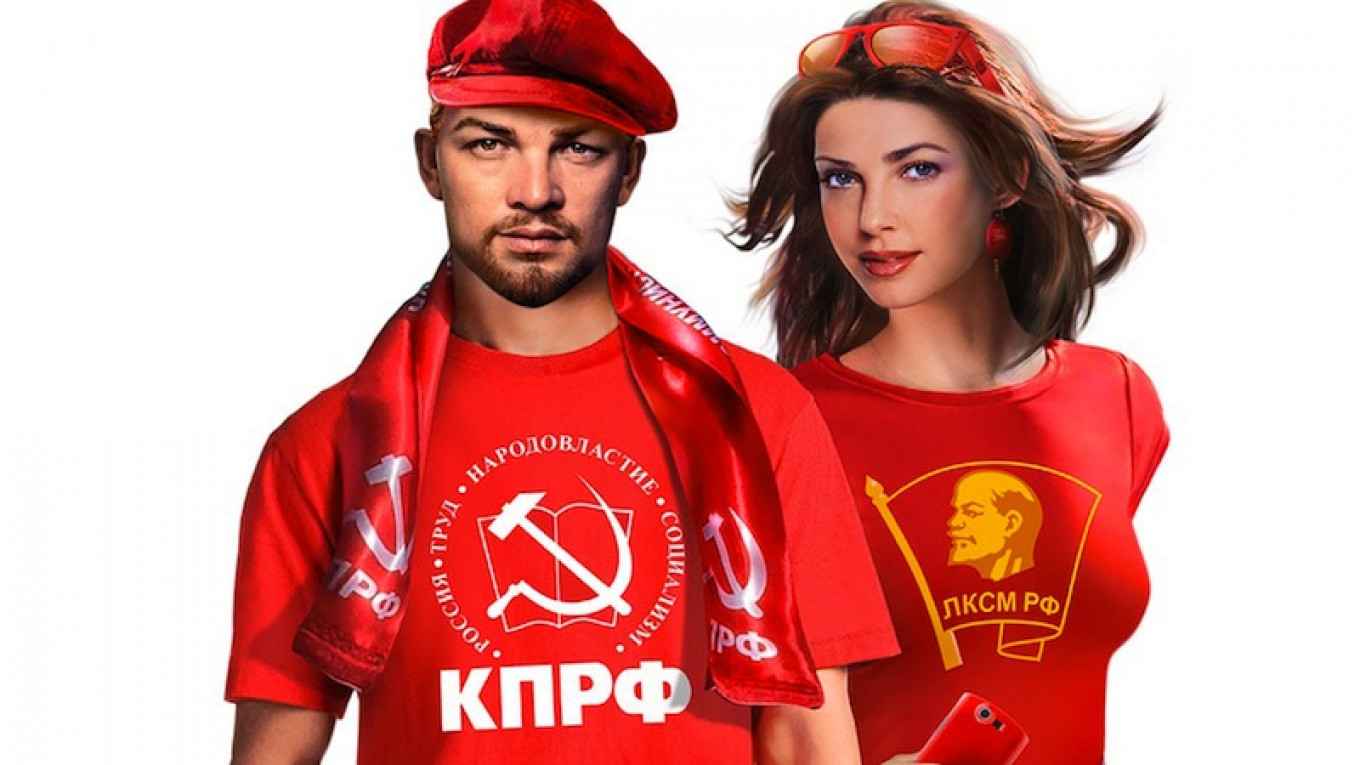
Comrades in Perm decided against the new cool, hip, in-with-the-times image and instead chose a more conservative theme. “Red is better than blue,” they declared, a clear jab at the local LGBT community. Party coordinators rather feebly insisted that blue instead referred to the color of other parties in the campaign.
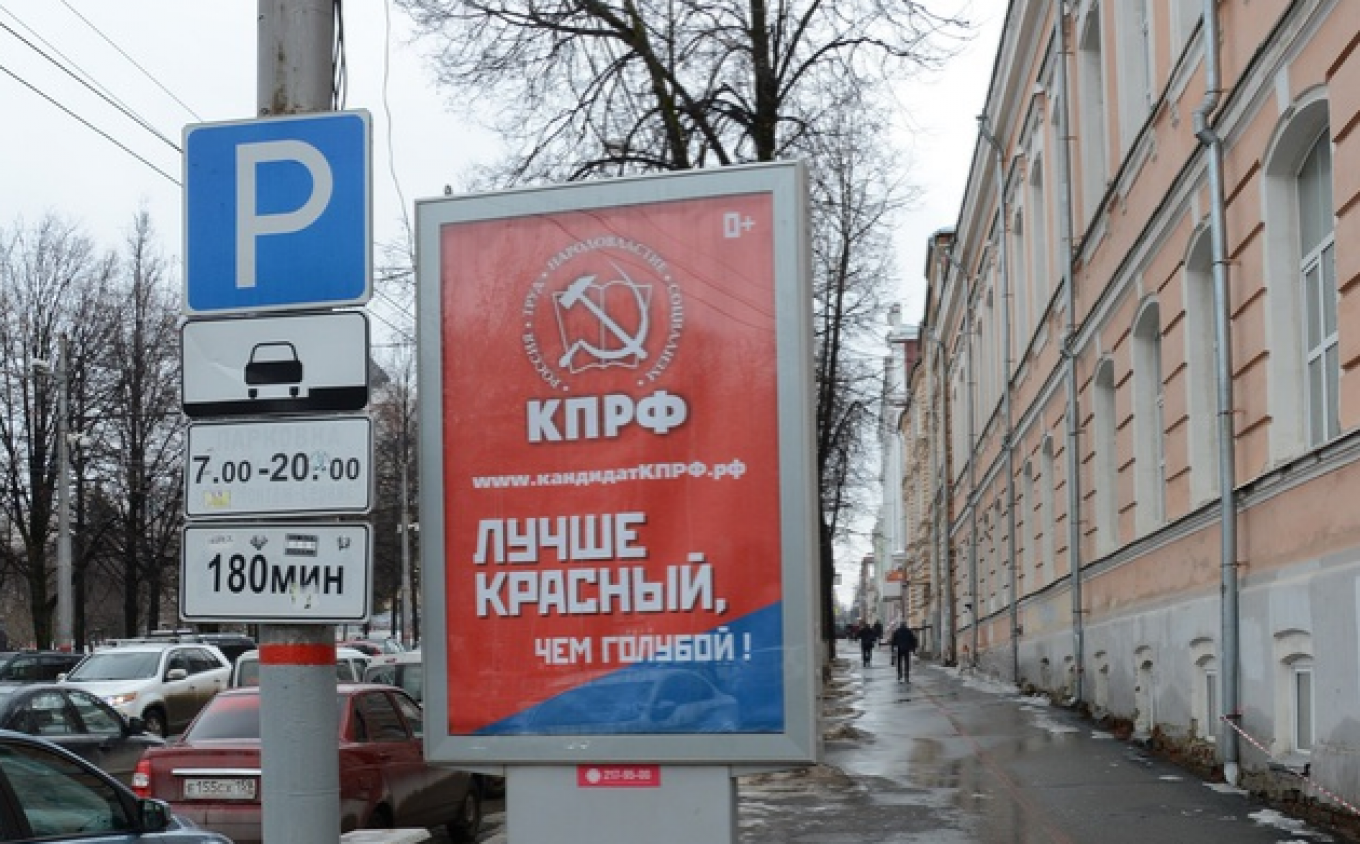
Political Correctness, Russian-Style
Some posters inspired scandal. Opposition politician Alexei Navalny, in particular, got into hot water over a poster advertising Dmitry Potashev, one of the candidates put forward by the United Russia.
On the poster Potashev, a portly middle-aged man, is pictured next to the slogan “For those struggling to get by in Russia.” Navalny tweeted a photo of the poster and repeated its slogan, implying that an overweight candidate could hardly “struggle to get by.” Cynicism turned to scandal when it transpired that Potashev was also blind. Navalny was duly accused of mocking a disabled person.
A Message from The Moscow Times:
Dear readers,
We are facing unprecedented challenges. Russia's Prosecutor General's Office has designated The Moscow Times as an "undesirable" organization, criminalizing our work and putting our staff at risk of prosecution. This follows our earlier unjust labeling as a "foreign agent."
These actions are direct attempts to silence independent journalism in Russia. The authorities claim our work "discredits the decisions of the Russian leadership." We see things differently: we strive to provide accurate, unbiased reporting on Russia.
We, the journalists of The Moscow Times, refuse to be silenced. But to continue our work, we need your help.
Your support, no matter how small, makes a world of difference. If you can, please support us monthly starting from just $2. It's quick to set up, and every contribution makes a significant impact.
By supporting The Moscow Times, you're defending open, independent journalism in the face of repression. Thank you for standing with us.
Remind me later.


